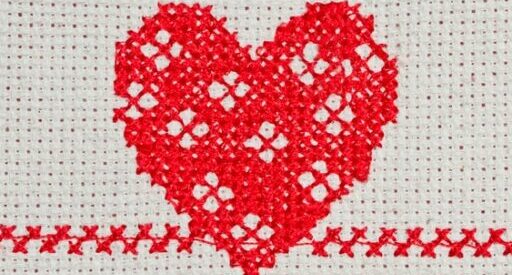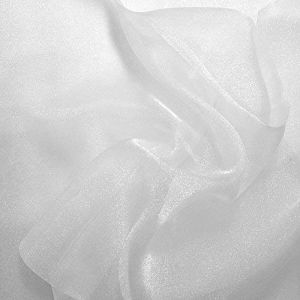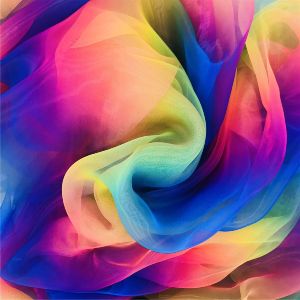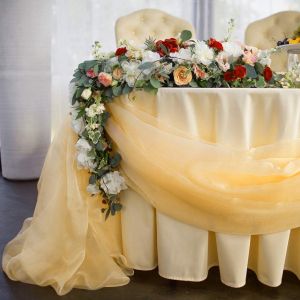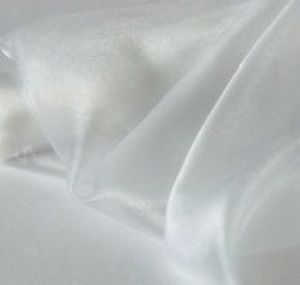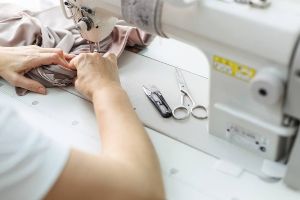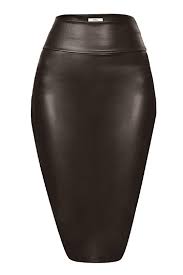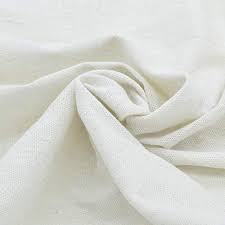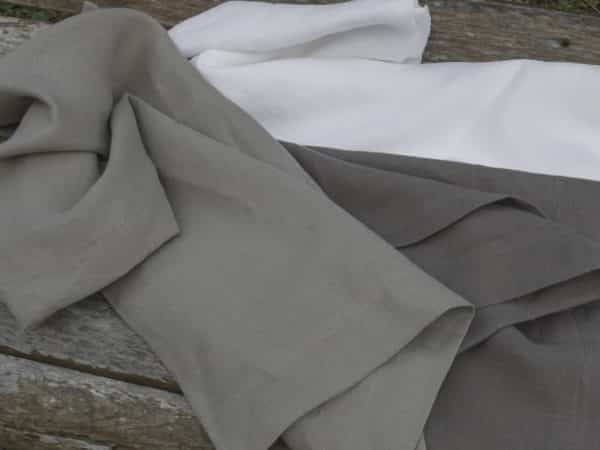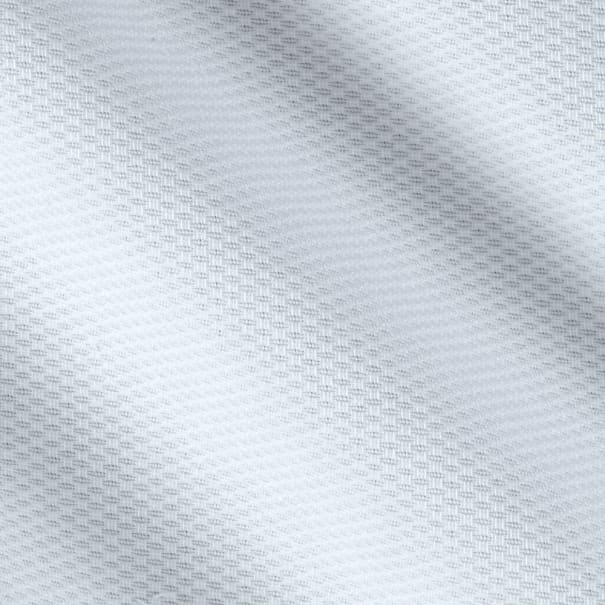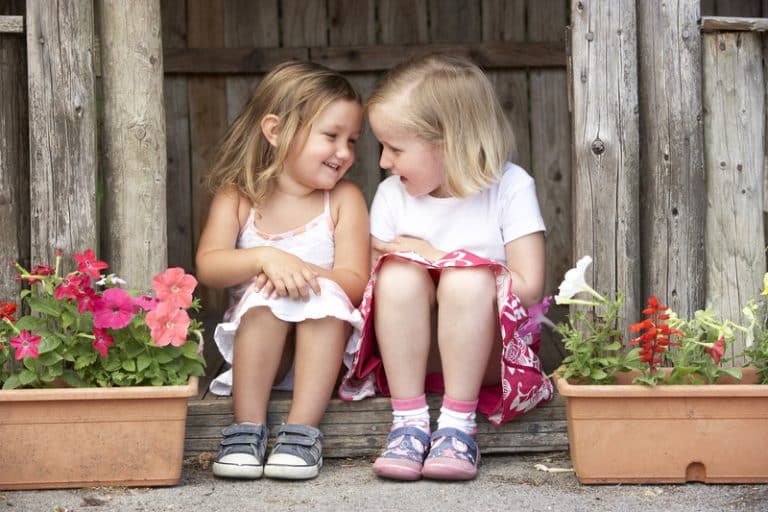Organza Fabric: History, Properties, Use, Care, Where to Buy
Table of Contents
- 1 Introduction to Organza Fabric
- 2 KEY TAKEAWAY
- 3 What Is the History of Organza Fabric?
- 4 Properties of Organza Fabric
- 5 How is Organza Fabric Made?
- 6 Where is Organza Fabric Made?
- 7 Common uses of Organza Fabric
- 8 How to care for Organza Fabric?
- 9 Where to buy Organza Fabric?
- 10 Best Organza Fabrics
- 11 Organza Fabric Buyer’s Guide
- 12 Conclusion
Introduction to Organza Fabric
The delicate fabric known as organza was historically manufactured from silk but is now more commonly created from polyester. Polyesters, most often nylon, can be used to make the fabric instead of natural fibers. Synthetic fabrics can be ripped and torn, but they last much longer than those made from natural fibers.
Organza has a simple weave pattern that makes holes, which are small spaces between the threads. The cloth is more suitable for use as organza if it has a greater number of spaces per inch. Organza is often used for wedding gowns and other formal clothes because it shimmers and is see-through.
KEY TAKEAWAY
- Organza fabric is a delicate fabric that was historically made from silk but is now commonly made from polyester. It has a simple weave pattern that creates small spaces between the threads, making it see-through and shimmering.
- Organza fabric is used in a variety of applications, including daily wear, home décor, and costumes. It is often used for wedding gowns and formal clothes due to its elegant appearance.
- When caring for organza fabric, it is best to hand wash it with a delicate wash and air dry it. Ironing should be done on the wrong side of the fabric with a low-temperature setting and a press cloth.
What Is the History of Organza Fabric?
Like most other types of silk fabric, silk organza fabric can be traced back to China, the country in which silk was initially farmed. Organza was shipped via the Silk Road, which connected China and Europe at many points, and its supply eventually extended around the world.
Properties of Organza Fabric
- It is a highly breathable fabric.
- The fabric is extremely thin.
- It is shimmery and reflects light well.
- It is prone to wrinkles and can tear easily.
How is Organza Fabric Made?
Because the technique of weaving organza is so difficult and demanding, most organza is still woven by hand. This is especially true for more delicate varieties of organza. It is possible to make organza with a machine. However, the quality of machine-made organza is worse.
The yarn is formed by tightly winding two single synthetic or silk fibers in opposing directions once the filament fibers have been generated.
Before being knit into a fabric, the strands are combed and then treated with acid. Organza’s essential attribute of stiffness is enhanced as a result of this. Because synthetic fibers are often stiff, they don’t necessarily need to be treated.
Straightforward weaving produces an eye-catching geometric pattern. The strands are woven together using the plain knitted method to make this pattern.
Types of Organza fabric
There are many different variations of organza fabric nowadays. Designers and consumers that prefer silk-induced organza fabric can opt for Crystal Organza. At the same time, individuals wanting polyester-produced organza fabric can choose Mirror Organza.
Where is Organza Fabric Made?
It is expected that China will maintain its position as the top supplier and seller of organza fabric globally. Several textile facilities specializing in organza are located along the Yangtze River, mainly in Zhejiang province.
In addition, India is the largest exporter of fabric, and the region of Bangalore is necessary to produce a more rigid variation of the material. Both France and Italy are renowned worldwide for the exquisite quality of the organza fabric that they create.
Common uses of Organza Fabric
Organza fabric is used for various garments along with different products.
Daily wear
Organza is typically put over satin or silk to add shine to evening gowns and prom dresses. Transparent organza allows designers to build sculptural layers. Organza is a popular shawl and dress overlay.
Home décor
To add a touch of elegance, sheer curtains and table runners made of organza are popular choices. Wedding archways, aisle mats, and other event artwork can also be made from it.
Other products and costumes
Small pouches made of organza are popular for carrying items such as necklaces and earrings. It is also popular for stage costuming, particularly dance outfits like skirts, thanks to the beautiful shimmer and how it catches the stage lighting.
Sewing with Organza fabric
Organza is a delicate fabric that needs to be sewn with care. The lightweight fabric can be easily cut using a rotary cutter and sewed. One should use the correct sewing accessories, sewing notions and supplies for a perfect result.
When sewing patterns and designs on the fabric, you should use a universal sewing needle. The sewing threads used should be made of cotton. And the stitches should be smaller than what you sew on a regular project.
You should use the best sewing machines available, like the Brother SE600, for accurate and exquisite results when sewing with organza.
Keeping in mind these little tips and tricks, you can easily sew your mesh fabric according to your taste and preference.
Dyeing with Organza fabric
Fabrics made of organza can take the dye, which may come as a surprise to some people. The approach is helpful for fashion designers and consumers who have their own design preferences.
The fabric can be dyed depending on the composition of the fabric. If made using cotton, silk, and other synthetic threads, the Rit All-Purpose Liquid Dye can be used as the best fabric dye available.
How to care for Organza Fabric?
Organza is a low-maintenance fabric that can be laundered and ironed with ease.
Washing
- Hand washing is the only way to clean organza properly.
- With a spritz of water, Delicate Wash can be added to an empty washbasin or sink.
- Gently swirl the water with your hands to ensure that the detergent is evenly distributed.
- Immerse the fabric in a tub of water for 20–30 minutes if possible.
- Rinse thoroughly with cool water to remove any chemical residue left.
- The fabric can be dried by air-drying it on a flat exterior.
Ironing
- Using a shark steam iron, press the fabric on the wrong side.
- Use a low-temperature setting and a press cloth between the fabric and the iron.
- Use pins to ensure the fabric stays in place.
Where to buy Organza Fabric?
Organza fabric can be purchased from fabric and garment retailers. Clients can also purchase organza fabric from online stores and websites like Fabric.com and Amazon, which have the best organza fabric available, like the Fabric Exchange Mirror Organza Fabric.
It can be sold in several ways depending on the seller;
- By yard
- By Inches
- Can be cut to order
Crafters and sewers use organza fabric for a variety of applications. It works well for large-scale decorations such as wedding arches, chair sashes, bows, and more. Organza can also be used for garment creation and makes great accents such as overlays on dresses and skirts and the design of dancewear. This buying guide will help you find the perfect organza fabric for any project you have in mind, whether small or large scale.
Best Organza Fabrics
Here are our organza fabric reviews.
1. FWD Sparkle Crystal Sheer Organza Fabric
This 100% polyester organza fabric is sheer and has a shiny finish. It comes in 34 solid colors. The fabric has a width of 60 inches and can be cut in any length you want, so you can get exactly how much you need for your project. It is the perfect fabric for decoration or for making fancy dress garments such as gowns.
- 100% polyester
- No stretch
- Cut to order
2. Awilon Rainbow Organza Fabric
This Awilon organza fabric is multicolored, which will help you add a distinctive touch to any project you have in mind. It is great for decorative projects and also suitable for creating garments such as tutus. It is thin and soft, so is perfect for draping or creating swags.
- Lightweight, thin and soft
- 16 feet by 54 inches
- Semi-transparent
3. Havii Organza Fabric
This Havii organza fabric is available in five different colors and comes in two different sizes. It is a great choice for decorations such as table runners, swags, and bows. It is reusable but should be hand washed in cold water and hung up to air dry.
- Single piece of fabric, 197×53 or 394×53
- Hand wash
- Light, transparent texture
4. Parfair Dessin Solid Sheer Organza by the Yard
This Parfair Dessin sheer organza fabric is sold by the yard and can be cut to order, so you can get exactly as much as you need. It comes in 35 solid colors. It works well for wedding and other decoration projects and will create beautiful bows and draping. It can also be used for garments.
- Shiny finish
- 44 inches wide
- 35 colors available\
5. The Fabric Exchange Mirror Organza Fabric
The Fabric Exchange’s organza fabric is solid colored, sheer, and made from 100% polyester. It is a great choice to add sheer decorations to garments such as dresses or dance wear, and also can be used to make decorations both for home and for events such as weddings.
- Plain weave
- Sheer
- 100% polyester
Organza Fabric Buyer’s Guide
Crafters and sewers often choose organza fabric when they want to create garments such as formal dresses and dancewear or large-scale decorative projects such as wedding decorations. The fabrics in this buying guide are suitable for a wide range of projects and the guide will help you find the perfect fabric for any project. There are a number of factors that are important to consider when selecting the appropriate fabric for your project.
The first factors to consider are the composition of the fabric and its care requirements. Most organza fabrics are made of 100% polyester. Some can be machine washed on the cold setting, but should be air dried for the best results. This is an important factor to take into consideration when creating garments, because it will take some effort to wash them so they should not be something that is meant for heavy use. The 100% polyester composition does mean that organza fabrics drape well without excessive wrinkling, which makes them a great choice for decoration projects for weddings, such as creating a wedding arch or bows for pews and chairs. The finish of the fabric is another factor to consider, and this buying guide includes both solid and transparent fabrics, depending on the fabric type you want. Materials are also available in a range of colors to match any color scheme.
Another factor to consider is what project you want to use the organza fabric for. Fabrics in this buying guide are available either by the piece (most pieces are larger) or can be ordered by the yard. Larger pieces are a great choice for large-scale decoration projects such as ceiling swags, wedding arches, and chair swags. With fabric that is cut to order, you have the option of ordering exactly as much fabric as you need for your project. By using this buying guide, you will be able to find the perfect organza project for your fabric.
Recommended Reading:
- Chapter 1: The 7 Sewing Essentials for Beginners
- Chapter 2: The Beginner’s Guide to Sewing Machines
- Chapter 3: The Ultimate Guide to Setting up your Sewing Room
- Chapter 4: Everything You Need To Know About Sewing
- Chapter 5: Sewing Fabric 101: A Virtual Tour of the Fabric Store
Conclusion
Organza fabrics have been around for a long time and are used for various products and apparel.
Sources
- the laundress
- Theseamanmom
- Master class
